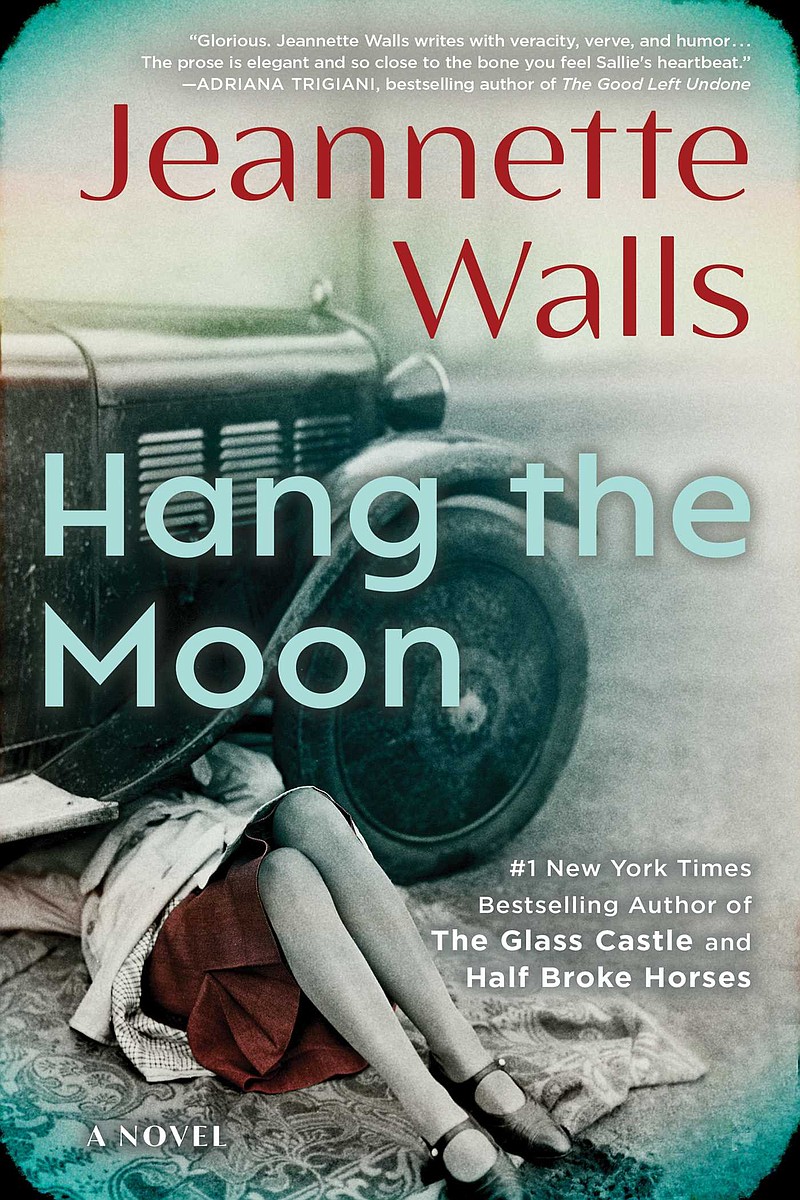Hang the Moon, By Jeannette Walls (Scribner, 368 pp. $28)
Jeannette Walls became a fixture on the bestseller list with her blockbuster memoir, "The Glass Castle," in 2005. After mining her own difficult life in that book, Walls turned toward fiction, writing two novels, "Half Broke Horses" (2009) and "The Silver Star" (2013). But Walls's family continues to inform her work. Her latest novel, "Hang the Moon," opens with words from her father, Rex Walls (played, memorably, by Woody Harrelson in the 2017 film of "The Glass Castle"): "Quality? Hell, the only time our whiskey aged was when we got a flat tire." The elder Walls apparently had a career in moonshine before Jeannette was born, and the plot of "Hang the Moon" draws on that real-life experience.
The novel centers on a bootleg liquor operation run in post-World War I Virginia by Sallie Kincaid, who, like Walls, is the spunky daughter of a complicated man and also, like the author, learns to shoot as a very young girl. "I favor a long gun over a handgun," 17-year-old Sallie tells us, having headed up to Hatfield County to rescue her Aunt Faye from an abusive boyfriend. "Never cared for the way a handgun feels in my grip, way out at the end of my arm, like a carpet beater or a stirring spoon. But now a long gun, when you take aim, it's almost like the gun becomes a part of you."
"Hang The Moon" is no Chekhov play: Not only does the gun not remain on the wall until the third act, but there's also a murder at a funeral in the first few pages. Well, in that case, the weapon is a knife, but the firearms show up soon after. Walls started her career as a gossip columnist, and she still loves an outrageous crime scene and a good scandal. Her version of Prohibition-era Virginia seethes with secret love children, spousal murders, marital "arrangements" and an over-the-top New Year's Eve party at a mansion where her heroine nearly drowns in the swimming pool.
But that is years after we first meet Sallie. "Hang the Moon" opens on the day her father, the mighty Duke Kincaid, gives her a Defiance Coaster wagon with wooden sides and red wheels "bigger than dinner plates," and she vows to become the fastest girl in the world. She's on her way to that goal when she takes a tumble that injures her passenger, her delicate younger half brother, Eddie. After this incident, her cruel stepmother, Jane, sends Sallie away to live with Aunt Faye, a poor relation up in the hills, and it's not until Jane's death nine years later that Sallie returns to the Big House.
The day of the funeral shows just how things are going to go - i.e., never a dull moment. After the murder, the Duke tells his daughter: "We don't need a trial in a case like this. Waste of taxpayers' money, and we're the taxpayers." Instead, he suggests a more economical resolution: "We're going to dispense a little Kincaid justice."
That turns out to consist of pinning the blame on a man named Chalky Hurd and then ordering Chalky to marry the dead man's widow that very afternoon - and to support her and her children in perpetuity. As Chalky is between jobs, the deal comes with lifetime employment at the post office. Although bride and groom are horrified by this arrangement, the Duke insists that those kids will be calling Chalky "Daddy" in no time.
Duke Kincaid's solution to this problem is bloodless, but that isn't always the case. It certainly wasn't the case with Sallie's mother, whom the Duke killed when Sallie was 3. Although Sallie has always known about it - she heard the shots - she has tried to put it out of her mind. "With Mama gone, the Duke was all I had, and I wanted to believe he was perfect." But that won't cut it anymore. In the months and years ahead, Sallie comes to understand more and more about her father's version of justice and morality, rooted in and poisoned by entitlement and privilege. His operation of his businesses and his relationships to his family and his tenants are resolutely feudal; his whim is law. (Many of the names in this book come from the Tudor court, starting with the Duke, whose given name is Henry for a reason.)
The main pleasure of "Hang the Moon" is the hairpin twists and turns of its plot, so let's say no more about that. Walls has spun another rich story that spotlights, as she said in a recent interview, "people with dreams and vulnerabilities, tough folk in rough situations." Also, it's a lot of fun to read.

